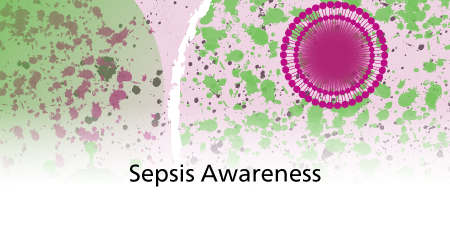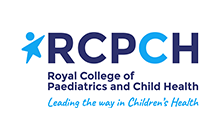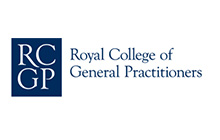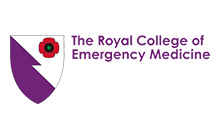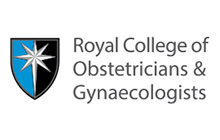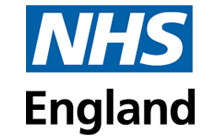Sepsis Awareness programme update
PLEASE READ: the Sepsis programme is being reviewed to align with updated NICE Guidance published on 31st January 2024.
Please ensure you read the guidance and take note of the updates as you complete the training. The guidance can be found here https://www.nice.org.uk/guidance/NG51.
The sepsis programme is being updated as a priority and each new session will be launched as soon as possible. Old sessions will remain available for a duration after launching new replacements to ensure learners can finish what they started. Please note all materials will be reviewed and their replacement requirements will be assessed case by case.
Please check the dates from the individual sessions.
About the Sepsis Awareness programme
Sepsis contributes to over 26,000 deaths annually. Some deaths are preventable. Prompt recognition of sepsis and rapid intervention will help reduce the number of deaths occurring annually. Asking the question ‘Could this be sepsis?’ is a critical when assessing a deteriorating patient.
Recognising its importance and the need for specialised training, NHS England has developed an e-learning programme to offer guidance on improving the diagnosis and management of sepsis across various settings.
This programme includes sessions aimed at both community-based healthcare professions as well as healthcare professionals working in acute settings. The elearning content is based on the latest NICE guidance on recognising and responding to suspected sepsis in adults, children and young people, care home settings, and people with a learning disability. There will be sessions added to cover pregnancy related sepsis at a later stage.
The learning materials that are available through this website and directly from the Learning Hub. We recommend reviewing the Sepsis programme in conjunction with the Recognising and Managing Deterioration programme, which includes sessions on patient assessment, early warning scores in various settings as well as soft signs.
The new materials created will replace the old ones in phases. Once new ones are uploaded the old ones will still remain available for a duration to enable learners to complete any sessions they may be in the middle of. These will be marked separately.
The Identification and Management of Sepsis in Community-based Care
Identifying and managing sepsis in community-based care is an important measure in reducing deaths. 70% of sepsis cases develop within the community and people with a learning disability are disproportionately affected.
The new and updated learning sessions under sepsis in community-based care are universally accessible and aimed at anyone who wants to learn more about sepsis. They address the early identification and management of sepsis in adults, children and young people, and people with a learning disability and follow the most recent NICE Guidance published in January 2024. These sessions are accessible through registration on the Learning Hub by anyone HERE
The Royal College of General Practitioners (RCGP) acknowledges NHS England’s recommendation for paramedics to be given NEWS2 scores upon arrival, despite NEWS2 not being validated for primary care. While the use of NEWS2 is not mandatory for assessing patients at risk of deterioration, we have included its calculation in this e-learning module to demonstrate the physiological measurements in the case studies.
-
Adult sepsis in community-based care
Identifying sepsis is crucial for positive patient outcomes. This elearning is aimed at introducing what sepsis is, how to identify sepsis, and what can be the potential causes. It also explains who may be at a greater risk of sepsis.
The elearning is aimed at any professional working with patients in primary care or community-based settings.
The session covers when to consider sepsis, which patients are at greatest risk and how to use clinical judgement alongside full sets of observations to identify and manage the unwell patient. Case studies are used to support the learning.
This session can be accessed HERE.
-
Paediatric sepsis in community-based care
This e-learning session introduces what sepsis is, how it affects children and how to recognise it in different age ranges. It also covers what the next steps are after identifying a child with possible sepsis.
The elearning will benefit any professional who comes into contact with unwell children who may have sepsis outside of the hospital setting. This includes people working in GP surgeries, schools, and the ambulance services.
The session covers what sepsis is, which infections can lead to sepsis and how they might present in a child and how to identify children at risk of sepsis and deteriorating children. You will also learn about paediatric early warning scores, what to do if you identify a child at risk of sepsis, and how to communicate this to hospital staff who will investigate, diagnose, and manage sepsis.
This session can be accessed HERE.
-
Sepsis and people with a learning disability
This session is aimed at anyone caring or supporting people with a learning disability.
It aims to help you to recognise when the person you support may be becoming unwell with sepsis and to know what to do. You will also learn about why people with a learning disability are at risk of sepsis and what you can do to reduce those risks.
This session can be accessed HERE.
-
Leadership sepsis primary care overview
The Leadership in Primary Care session is designed for non-clinical and clinical leaders working in primary care and looks at the challenges in leadership roles, to ensure best practice, in identifying and managing acute deterioration and sepsis in primary care settings, including general practice.
Sepsis in Paediatrics Learning Resources
Sepsis can strike the very old and the very young and as a result children, particularly premature babies and infants, can be more susceptible to developing sepsis.
Everyday somewhere in the UK a child dies from sepsis and cases have shown that a significant number are preventable. Children who survive can be left with debilitating consequences.
Early recognition and intervention can improve outcomes for infants and children with conditions that lead to sepsis. These paediatric resources are designed to ensure that all of us who work with sick children on the front line know how to recognise the clinical features of sepsis at the earlier stages and what to do when we see it.
All the following content will be removed on 15th January 2025 due to the updated guidance on treating sepsis by NICE and NEWS2:
-
Practical resources for clinicians to share with patients and carers (as part of safety-netting): home setting
NHS Choices:
- Does your child have a serious illness? Aimed at parents (NHS Choices)
- NHS Spotting sepsis in under 5’s
- Looking after a sick child
-
Practical resources for clinicians to share with patients and carers (as part of safety-netting): secondary care
Recognition of early sepsis
Recognition of early sepsis: assessment of sick children
- SystemOne templates: Dr David Gould and Cricketfield practice
- KSS Clinical Pathways for Sick Children – elfh or SESCN
-
Further resources
- Bacterial meningitis and meningococcal septicaemia in children – online learning | RCPCH
- MRF: Meningitis Research Foundation: Meningococcal Disease and Bacterial Meningitis in Children and Young People
Sepsis in People with a Learning Disability Learning Resources
The Learning Disabilities Mortality Review (LeDeR) report published in 2022 highlighted sepsis as a key contributor to premature mortality, with 14% of deaths being recorded as sepsis related. In response NHS England have undertaken work to improve the sharing of information on people with a learning disability, across health and care settings and have published an ‘action from learning’ report that provides examples of the local changes that have been made to services in response to common themes raised through LeDeR reviews across the country.
A number of freely available resources have been developed for the system that includes:
-
Sepsis in people with a learning disability elearning
This session is aimed at anyone caring or supporting people with a learning disability.
It aims to help you to recognise when the person you support may be becoming unwell with sepsis and to know what to do. You will also learn about why people with a learning disability are at risk of sepsis and what you can do to reduce those risks.
This session can be accessed here
-
Additional resources for caring for people with a learning disability
People with learning disabilities are often at increased risk of a number of health issues. This elearning has been developed to provide carers with information to reduce the risk of health deterioration in the people they support. These sessions are recommended for anyone looking after a someone with a learning disability.
The sessions are:
- Constipation awareness
- Spotting signs of someone becoming poorly
- Annual health check
- Reasonable adjustments
These sessions can be accessed here: https://www.e-lfh.org.uk/programmes/caring-for-people-with-a-learning-disability/
The Identification and Management of Sepsis in Acute Care
Sepsis in acute care sessions are currently being developed which discuss acute sepsis in adults, children and young people with a learning disability. These will be launched on the Learning hub as soon as they are completed. There will be additional sessions on pregnancy and caring for older people in due course.
We encourage people in a managerial role to review the sepsis in leadership sessions keeping in mind the new NICE guidance. This session will also be updated soon.
-
Sepsis in leadership – acute care
Sepsis for management and executive staff in acute care
A learning resource for executive, non-executive and management level staff in trusts on sepsis, incorporating antimicrobial resistance and stewardship.
This training programme gives specific context for boards to understand the clinical priorities within healthcare and how boards and clinical leaders can work together to deliver of high-quality safe care.
The training consists of an elearning session to be taken independently, to be followed by a facilitated discussion with board members and clinical staff.
It encourages engagement and debate within a trust, to understand locally what appropriate care looks like and what a board should be doing to deal with specific issues within their trust to maintain good standards on the quick recognition, management and treatment of sepsis and in improving standards of antibiotic prescribing.
-
Additional resources for acute care:
Examples of learning sessions that healthcare workers in secondary care will find useful to address their training needs can be found below:
- Assessment and Differential Diagnosis of Sepsis (03_17_01) E-learning for doctors and nurses in secondary care
- Management of the Septic Patient (03_034) E-learning for doctors in secondary care, nursing and pharmacy staff in a critical care environment
- Managing Sepsis (08_09) E-learning for Foundation programme doctors.
Adult Sepsis Team
Dr Alison Tavaré
NHSE SW Learning Disability Collaborative Clinical Lead
Health Innovation West of England Clinical Lead
NCEPOD Clinical Co-ordinator
Dr Chris McQuitty
GP registrar
National Medical Director’s Clinical Fellowship, The Care Quality Commission
Paediatrics Sepsis Team
Dr Emma Lim
Consultant General Paediatrics and Paediatric Infectious Diseases and Immunology
Great North Children’s Hospital, Newcastle upon Tyne.
Dr Christo Tsilifis
NIHR Academic Clinical Fellow in Paediatrics and Paediatric Immunology
Great North Children’s Hospital and Newcastle University
Dr Ananya Baksi
Foundation Trainee
Newcastle upon Tyne Hospitals
Sepsis in People with a Learning Disability
Dr Alison Tavaré
NHSE SW Learning Disability Collaborative Clinical Lead
Health Innovation West of England Clinical Lead
NCEPOD Clinical Co-ordinator
Dr Elizabeth Herrieven
Consultant in Emergency Medicine
Clinical Lead for Governance, Medical Care Group
Sheffield Children’s NHS Foundation Trust
Honorary Senior Lecturer, MSc in Paediatric Emergency Medicine, QMUL
Paula Shrubsole, Lead Nurse Sepsis and AMR
Sherwood Forest Hospitals NHS Foundation Trust
Leadership Sepsis
Professor Matt Inada-Kim
Consultant Acute Physician, Hampshire Hospitals NHS Foundation Trust & University of Southampton
National Clinical Director- Infection management and Antimicrobial Resistance, NHS England
UK Health Security Agency
Royal College of Physicians
Dr Simon N. Stockley, MB ChB, FRCGP, FIMC (RCSEd), DUMC
GP, Eaglescliffe Medical Practice, North-east of England
Medical Director, National COVID-19 Vaccination Programme
NHS England and NHS Improvement (National)
NHSE TEL Team
Sarah Gray, Programme Manager
Essi Niittymaki, Senior Project Manager
Claire Beattie, Lead Learning Designer
Rachel Grant, Learning Designer
Abigail Lingford, Graphic Designer
How to access
Available to all
The Sepsis programme is freely available to access here. Please note these are the old sessions and this will be updated shortly. You can access the new sessions via the links above.
Please note your progress and completion of sessions will not be recorded and you will not be able to generate a record of completion. If you require evidence of learning, please register and then log in to access this programme on the elfh Hub.
If you already have an account with elfh, then you can enrol on to the Sepsis programme by logging in to the elfh Hub, selecting My Account > Enrolment and selecting the programme. You can then access the programme immediately in the My elearning section.
To view the Sepsis programme, select the View button below. If you already have an account with elfh, you will also be able to login and enrol on the programme from the View button.
NHS healthcare staff in England
The Sepsis programme is also available to NHS healthcare staff via the Electronic Staff Record (ESR). Accessing this elearning via ESR means that your completions will transfer with you throughout your NHS career.
Further details are available here.
Not an NHS organisation?
If you are not an NHS health or care organisation and therefore do not qualify for free access elfh Hub, you may be able to access the service by creating an OpenAthens account.
To check whether or not you qualify for free access via OpenAthens, you can view the eligibility criteria and register on the ‘OpenAthens’ portal.
Care home or hospice staff
To register for the Sepsis programme, select the ‘Register’ button above. Select the option ‘I am a care home or hospice worker’ then enter your care home / hospice name or postcode and select it from the options available in the drop down list. Finally enter your care home / hospice registration code and select ‘Register’. You may need to see your employer to get this code.
If your employer does not have a code, then they need to contact the elfh Support Team. The Support Team can either give the employer the registration code or arrange a bulk upload of all staff.
Detailed instructions on how to gain access are available here.
Social care professionals
Access to elfh content is available to all social care professionals in England whose employers are registered with the Skills for Care National Minimum Data Set for Social Care (NMDS-SC). Every employer providing NMDS-SC workforce information to Skills for Care has been given a user registration code for their staff. This code enables you to self-register for access to the Care Certificate programme. Please contact your employer for more details about the registration code.
For information about registering your organisation with the NMDS-SC your employer should access www.nmds-sc-online.org.uk or contact the Skills for Care Support Service on 0845 8730129.
If you have a registration code, you can register by clicking here
Registering large numbers of users
If you are a HR, IT or Practice Manager and would like to register and enrol large numbers of staff within your organisation for access onto the Sepsis programme, please contact elfh directly.
Organisations wishing to use their own LMS
For HR departments wanting to know more about gaining access to courses using an existing Learning Management System please contact elfh directly to express interest.
More information
Please select the following link for more information on how to use the elfh Hub.



